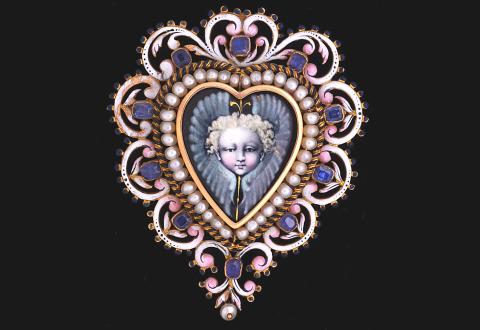
The Heart Museum
More than 500 objects shed light on the symbolism of the heart in Western culture, dating from the 16th century to the early 20th century. Audio recordings with quotations, poems, and musical excerpts provide atmosphere. The collection was assembled by cardiologist Noubar Boyadjian, who donated it to the Art & History Museum in 1990.
Religious objects
The heart has long been a universal symbol, quickly becoming the preferred emblem of love, while also gaining an important place in Christian devotion through the veneration of the Sacred Hearts of Jesus and Mary. By far the most numerous, curious, and oldest items are religious objects: ex-votos, reliquaries, chrismatory items, oil lamps, holy water stoups, sculptures, paintings, prints, and similar works.

Symbol for love
Since the 17th century, heart-shaped jewellery has been widely popular as a symbol of love, appearing in brooches, bangles, rings, necklaces, and more. Countless other objects feature a heart shape or motif. Among the most common are boxes, perfume bottles, flasks, plates, glasses, inkpots, ashtrays, clasps, cake moulds, furniture, and embroidered cushions adorned with pearls, as well as postcards.

Contact
- Linda Wullus: l.wullus@kmkg-mrah.be